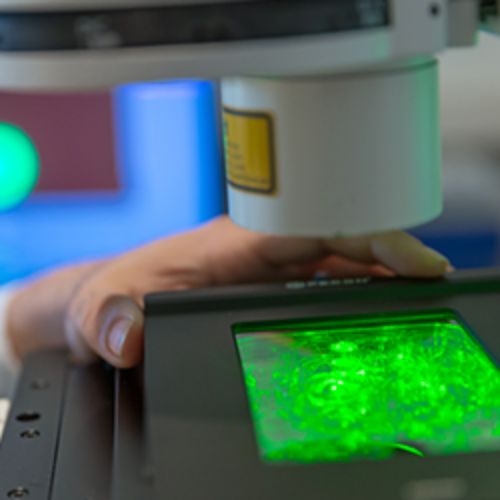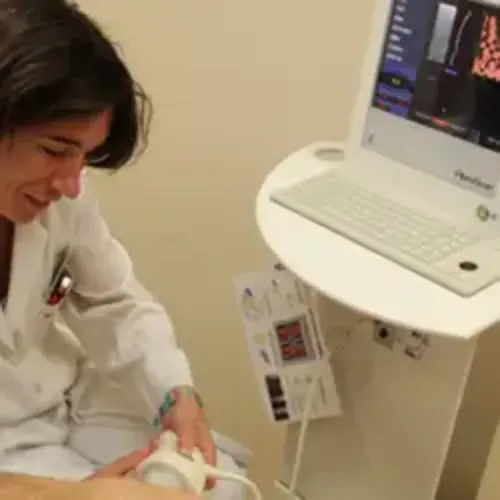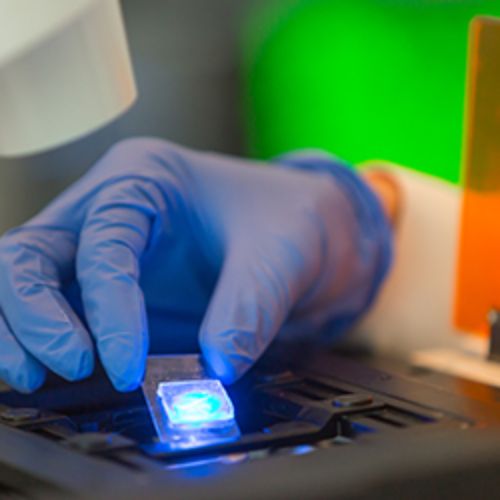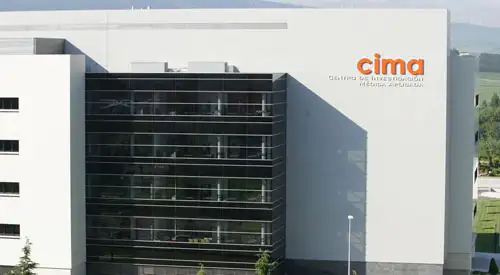Hepatology: Metabolism, Epigenetics and Carcinogenesis
"We have identified proteins that can protect liver tissue during acute injury and are developing forms of these proteins that can be converted into drugs."
DR. MATÍAS ÁVILA ZARAGOZÁ SENIOR RESEARCHER. HEPATOLOGY: METABOLISM, EPIGENETICS AND CARCINOGENESIS RESEARCH GROUP
Liver cancer has emerged as a neoplasm of increasing incidence in recent years, both hepatocarcinoma (HCC) and cholangiocarcinoma (CC), being the third leading cause of cancer death worldwide. On the other hand, hepatoblastoma (HB) is a rare tumor, but it is the first type of childhood liver tumor. HCC is the most frequent liver cancer and its etiological origin is changing in recent years, with an increasing prevalence associated with obesity and metabolic syndrome.
Despite the existence of screening programs in the at-risk population, the prognosis of HCC is poor due to the low sensitivity of these screening tests, the insufficient therapeutic offer and the scarce knowledge of the biology of the disease. The possibility of reaching a diagnosis in the early stages of the disease is essential and this requires the development of useful biomarkers. In turn, the development of therapeutic improvements requires a deeper understanding of the molecular mechanisms of the disease and the availability of treatments with proven efficacy for almost all stages of the disease makes it necessary to define the most appropriate and cost-effective strategies for diagnosis and treatment.
In this context, the exploration of new therapeutic approaches such as epigenetic strategies, or the development of new approaches in immunotherapy, are areas of great interest in both HCC, CC and HB. Likewise, the identification of biomarkers with high sensitivity and specificity, allowing early detection of both HCC and CC, is an unmet need.
Our fundamental objective is to deepen our understanding of disease mechanisms in order to identify new biomarkers and effective therapeutic targets. For these translational purposes we analyze clinical samples, use relevant animal models of disease and apply state-of-the-art analytical molecular technologies. We also maintain active collaborations with companies in the biotechnology and pharmaceutical sectors. We are one of the groups with the broadest international experience in basic and translational hepatology.
This group is integrated in the Cancer Center Clínica Universidad de Navarra.

GROUP LEADER
| Dr. Matías Ávila | |
| +34 948 194 700 | Ext. 814003 | |
| maavila@unav.es | |
| Research profile | |
Oncology research integrated in the
Cancer Center Clinica Universidad de Navarra

Objectives of the Hepatology: Metabolism, Epigenetics and Carcinogenesis research group
Develop hepatoprotective strategies aimed at recovering liver function and regenerative capacity.
To find new therapeutic strategies to treat steatosis and cirrhosis in order to recover liver function.
Identify and characterize effective molecular targets for the treatment of liver cancer.
FROM THE LABORATORY DIRECTLY TO THE CLINIC
Cutting-edge translational research
Aware of the impact they have on the population and, consequently, on healthcare costs, the Hepatology Program focuses on understanding the cellular and molecular mechanisms of the hepatic response to acute and chronic injury.

Hepatic lesions
Study of the causes that lead to liver damage and its behavior, which will make it possible to enhance the defense mechanisms and find new treatments.

Liver cirrhosis
When cirrhosis appears, it is irreversible and, if decompensated, the only definitive solution is liver transplantation. Our research is looking for mechanisms to prevent its onset or to slow its progression.

Liver cancer
We do research not only in immunotherapy, but also in the development and knowledge of targeted treatments that aim to identify molecular alterations in liver cells.

Would you like to help us?
Thanks to the generosity of many people, the Cima Universidad de Navarra is a reality that strives to offer therapeutic solutions to achieve personalized medicine for patients.
Meet the research team









Scientific activity of the Hepatology: Metabolism, Epigenetics and Carcinogenesis research group
Latest scientific publications
- Oral lipoteichoic and lipoic acids improve insulin resistance and body composition in porphyria mice on a high-carbohydrate diet Sep 26, 2025 | Magazine: Journal of Physiology and Biochemistry
- FGF21 and APOA1 mRNA-based therapies for the treatment of experimental acute pancreatitis Jan 27, 2025 | Magazine: Journal of Translational Medicine
- New insights into the regulation of bile acids synthesis during the early stages of liver regeneration: A human and experimental study Apr 19, 2024 | Magazine: Biochimica et Biophysica Acta (BBA) - Molecular Basis of Disease
- A new FGF15/19-mediated gut-to-heart axis controls cardiac hypertrophy Nov 26, 2023 | Magazine: The Journal of Pathology




